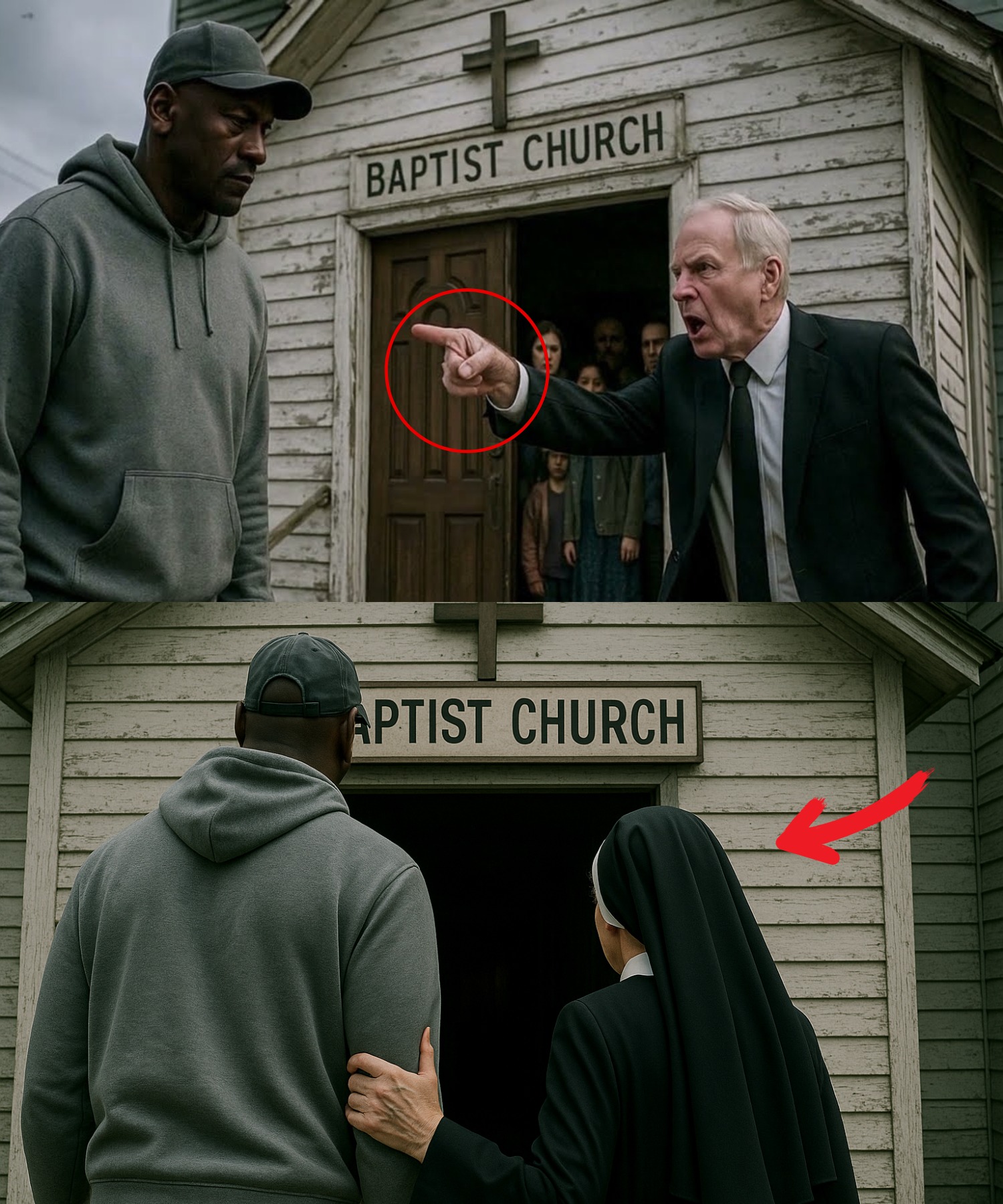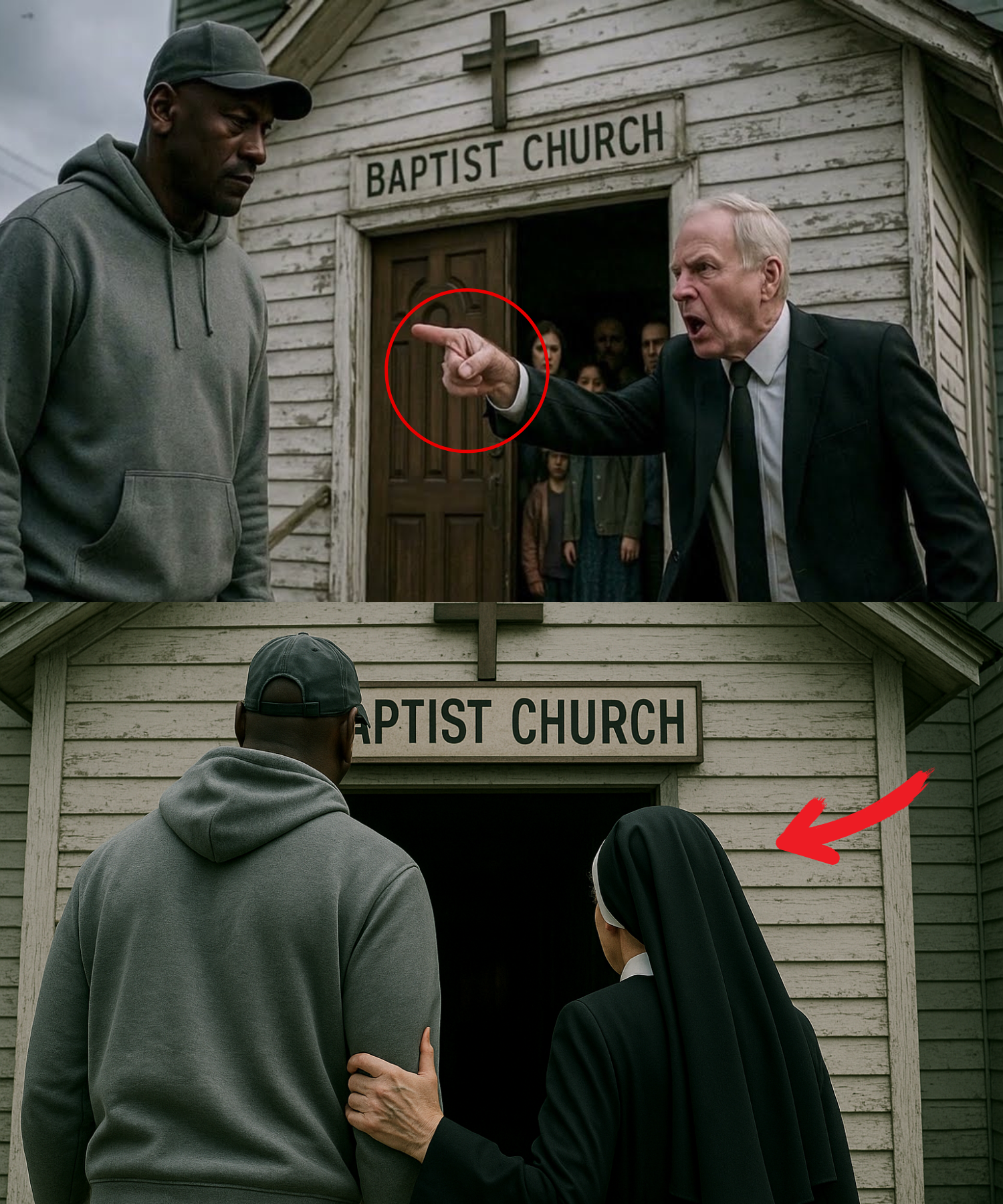Michael Jordan was kicked out of a church — and understood the true gospel

Michael Jordan was used to being recognized everywhere he went—on basketball courts, in restaurants, even just walking down the street. But on this particular Sunday, he wanted nothing more than anonymity. He was visiting a small town for a charity basketball clinic and, feeling the need for spiritual reflection, searched for a local church. He found a modest, white-painted chapel on a quiet corner, its doors open wide to the morning sun.
Dressed in simple jeans, a plain hoodie, and sneakers, Michael hoped to blend in. He arrived just as the service was beginning, slipping quietly into a pew near the back. The church was filled with the sound of hymns and the soft murmur of prayers. For a moment, Michael felt at peace, grateful for a chance to worship in solitude.
But as the pastor began to speak, Michael noticed a few people glancing in his direction, whispering among themselves. An usher, a middle-aged woman with a tight smile, approached him. “Excuse me, sir,” she whispered, “this section is for regular members. If you don’t mind, could you move to the back, please?”
Michael nodded, not wanting to cause a scene. He moved to the very last row, but the stares continued. A few minutes later, another church official, the head deacon, approached him. “Sir, I’m sorry, but we have a dress code here. We expect our guests to wear their Sunday best. Maybe you’d be more comfortable attending a different service.”

Michael was stunned. He glanced around, realizing that most people wore suits and dresses, but he had never imagined that would be a barrier to worship. He quietly stood up and walked out, feeling a mix of embarrassment, anger, and sadness.
Outside, Michael sat on the church steps, his head in his hands. Wasn’t church supposed to be a place for everyone? For the first time in years, he felt truly alone.
As he sat in silence, an elderly man with a gentle face approached him. “You alright, son?” the man asked, sitting down beside him. Michael hesitated, then nodded. “I just wanted to pray, but I guess I didn’t belong.”
The old man smiled knowingly. “Years ago, they turned me away too. Said I wasn’t good enough, didn’t look the part. But you know, that’s not what Jesus taught. The real gospel is about love—about opening your heart to everyone, not just the people who look or act a certain way.”
Michael listened, the man’s words sinking in. “Sometimes,” the man continued, “when doors close, it’s just a reminder that God’s love isn’t limited to any building. It’s found in kindness, forgiveness, and how we treat each other.”
Moved by the conversation, Michael thanked the man and left, his heart lighter. That afternoon, he returned to the basketball court for his charity event. But this time, his message to the kids was different. He spoke about acceptance, about lifting each other up, and about never letting anyone make you feel unworthy.
Word of what happened at the church spread through the town. Some felt ashamed, others inspired. The church’s pastor later reached out to Michael to apologize, admitting that the congregation had lost sight of their true mission.
In the weeks that followed, Michael found himself thinking less about fame and more about faith. He started supporting organizations that promoted inclusion and kindness. He even returned to that same church, not to worship, but to speak about what he had learned: that the true gospel isn’t about rules or appearances, but about unconditional love.
And in that lesson, Michael Jordan found a deeper sense of purpose—one that would stay with him for the rest of his life.